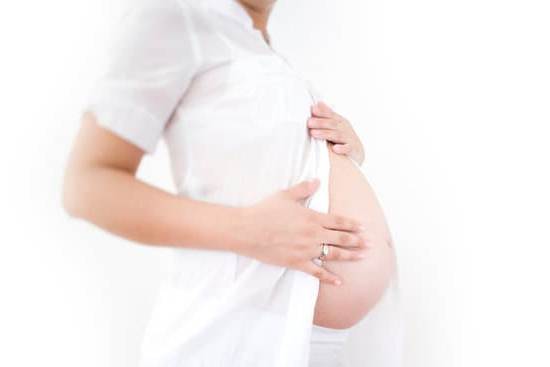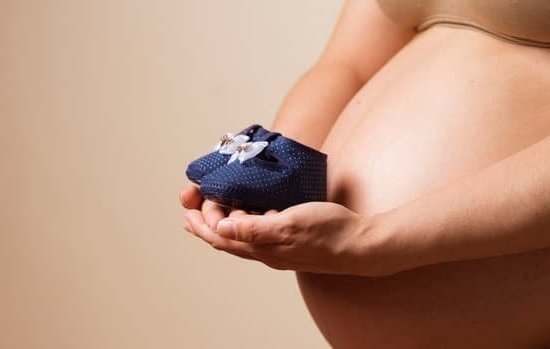When do early pregnancy symptoms start? This question often sparks a mix of excitement and anxiety for those trying to conceive or wondering if they might be pregnant. The anticipation of potential signs can lead to a range of emotions as individuals eagerly await confirmation of a possible pregnancy.
Understanding the menstrual cycle is crucial in pinpointing when early pregnancy symptoms may begin. Conception and the subsequent development of a new life are often dated based on the timing of a woman’s menstrual cycle. By tracking ovulation and knowing the typical length of one’s cycle, individuals can better predict when pregnancy symptoms might manifest.
Implantation, the process where the fertilized egg attaches to the uterine wall, plays a significant role in signaling the beginning of pregnancy symptoms. Typically occurring about 6-12 days after fertilization, implantation marks an essential milestone in early pregnancy. From there, hormonal changes kickstart various symptoms like nausea, fatigue, and breast tenderness that many women experience in the first few weeks after conception.
Understanding the Menstrual Cycle
The menstrual cycle plays a crucial role in understanding when early pregnancy symptoms may start. Conception and pregnancy are often dated based on the menstrual cycle, with the first day of the last menstrual period being used as a starting point. This date is important for calculating the estimated due date and determining when early symptoms might be expected to occur. Typically, ovulation occurs around mid-cycle, which is when conception can happen if sperm meets egg.
Ovulation is the process in which an egg is released from the ovary into the fallopian tube, ready to be fertilized by sperm. For women with regular 28-day cycles, ovulation generally happens around day 14. If fertilization occurs during this window, it can lead to pregnancy. The fertilized egg then travels down to the uterus for implantation, marking the beginning stages of pregnancy.
Due to variations in cycle lengths and ovulation timing, it can be challenging to pinpoint exactly when early pregnancy symptoms will start for each individual. However, understanding the basics of the menstrual cycle can provide a general idea of when symptoms might be expected after conception. It’s essential for individuals who suspect they may be pregnant to pay attention to their bodies and seek medical advice if needed for confirmation and support.
Implantation
When it comes to early pregnancy symptoms, understanding the process of implantation is crucial. Implantation occurs when a fertilized egg attaches itself to the lining of the uterus, marking the beginning of pregnancy. This process typically takes place about 6-12 days after fertilization, but can vary from woman to woman. Some may experience implantation bleeding, which is light spotting that can occur around the time of implantation.
During implantation, hormonal changes begin to take place in the body, which can lead to some early signs of pregnancy. These early symptoms can include nausea, fatigue, breast tenderness, and mood swings. It’s important to note that not every woman will experience these symptoms or may experience them at different times. This variability highlights the uniqueness of each woman’s body and pregnancy journey.
For many women, early pregnancy symptoms start to become noticeable around 4-6 weeks after conception. However, some may start experiencing symptoms earlier or later. It’s essential to remember that every woman and every pregnancy is different, so timing can vary significantly. If you are unsure about when early pregnancy symptoms should start for you personally, consulting with a healthcare provider can provide clarity and support during this exciting and sometimes anxiety-inducing time.
Early Signs
During the early stages of pregnancy, many women eagerly anticipate the onset of symptoms that may indicate they are expecting. Nausea, fatigue, and breast tenderness are among the most commonly reported early signs of pregnancy. These symptoms can vary in intensity and timing from woman to woman, adding to the excitement and uncertainty surrounding the question of when early pregnancy symptoms start.
Nausea
Nausea, often referred to as morning sickness, is a classic indicator of pregnancy. While it typically starts around the sixth week of gestation, some women may experience it as early as two weeks after conception. The exact cause of nausea during pregnancy is not definitive, but hormonal changes are believed to play a significant role. For some women, this symptom may be mild and manageable, while for others, it can be quite severe and affect their daily routine.
Fatigue
Feeling unusually tired and fatigued is another common early sign of pregnancy. This can be attributed to increased levels of progesterone which cause drowsiness while also supporting the development of the fetus. Fatigue can start as early as one week after conception and may persist throughout the first trimester. It is essential for pregnant individuals to listen to their bodies and allow themselves ample rest during this time.
Breast Tenderness
Breast tenderness or soreness is a symptom experienced by many pregnant women shortly after conception. This occurs due to hormonal changes that stimulate blood flow and glandular tissue growth in preparation for breastfeeding. Women may notice increased sensitivity in their breasts or a feeling of fullness.
These changes usually begin around two to three weeks after conception and might continue throughout pregnancy for some individuals. Remember that every woman’s experience with early pregnancy symptoms can differ; if you suspect you are pregnant but have not yet noticed these signs, don’t worry as symptoms vary widely among expectant mothers.
Timing
During the early stages of pregnancy, many women are eager to know when they might start experiencing symptoms that could indicate a pregnancy. While every woman’s experience is unique, there is a general timeline for when early pregnancy symptoms can begin after conception. Typically, these symptoms may start as early as one to two weeks after conception, but this can vary from woman to woman.
One of the earliest signs of pregnancy is usually a missed period, which prompts many women to take a pregnancy test. Beyond that, other common symptoms may include nausea, often referred to as morning sickness, fatigue, breast tenderness, and frequent urination. These signs can manifest anywhere from a few days to several weeks after conception. However, it’s important to remember that not all women will experience all of these symptoms and some may not experience any at all.
It’s crucial for women who suspect they may be pregnant to pay attention to their bodies and be mindful of any unusual changes or sensations. It’s also recommended to consult with a healthcare provider if experiencing signs of pregnancy or considering taking a pregnancy test. Early detection and prenatal care are essential for ensuring a healthy pregnancy journey for both the mother and the developing baby.
| Early Pregnancy Symptom | Timeline After Conception |
|---|---|
| Nausea (morning sickness) | 1-2 weeks |
| Fatigue | 1-3 weeks |
| Breast Tenderness | 2-4 weeks |
Individual Differences
During early pregnancy, it is essential to understand that each woman may experience symptoms differently. This variation can be attributed to several factors, including differences in hormone levels, individual sensitivity to changes in the body, and overall health. It is important not to compare one’s experience to someone else’s, as the onset and intensity of symptoms can vary significantly from woman to woman.
Factors Influencing Individual Differences in Early Pregnancy Symptoms
- Hormone Levels: Hormonal changes play a crucial role in pregnancy, and the levels of hormones like progesterone and human chorionic gonadotropin (hCG) can vary among women. These hormonal fluctuations can impact when and how intensely symptoms manifest.
- Diet and Lifestyle: A woman’s diet, exercise routine, stress levels, and overall lifestyle habits can also influence how she experiences early pregnancy symptoms. Factors such as nutritional intake and physical activity can affect symptom severity.
- Genetics: Genetic factors can also contribute to individual differences in experiencing early pregnancy symptoms. Some women may have genetic predispositions that make them more or less prone to certain symptoms during pregnancy.
Coping With Individual Differences
- Listen to Your Body: Pay close attention to your own body and how it responds during early pregnancy. Communicate any concerns or unusual symptoms with your healthcare provider for guidance.
- Support System: Surround yourself with a supportive network of friends, family, or online communities who understand the variations in pregnancy experiences. Sharing your journey with others can provide comfort and reassurance.
- Self-Care: Practice self-care techniques such as adequate rest, balanced nutrition, gentle exercise, and stress management to help alleviate discomfort associated with early pregnancy symptoms. Remember that taking care of yourself is essential during this exciting time.
By recognizing and respecting the individual differences in how women experience early pregnancy symptoms, expectant mothers can navigate this phase with greater understanding and self-awareness. If you have any concerns about your symptoms or general well-being during early pregnancy, do not hesitate to seek guidance from a healthcare professional for personalized advice and support. Remember that every pregnancy journey is unique, and what matters most is taking care of yourself and your growing baby.
Pregnancy Tests
There are two main types of pregnancy tests available: over-the-counter urine tests and blood tests conducted by healthcare providers. Over-the-counter urine tests are convenient, easily accessible, and provide quick results within minutes.
However, it is recommended to take these tests a few days after a missed period for the most accurate results. On the other hand, blood tests conducted by healthcare providers can detect hCG levels earlier than urine tests and provide quantitative measurements that can help track the progression of pregnancy.
Here are some key points to consider regarding the reliability of pregnancy tests when detecting early symptoms:
- Sensitivity: Pregnancy tests vary in sensitivity levels, with some being able to detect lower levels of hCG earlier than others.
- Timing: It is essential to follow the instructions carefully and take the test at the appropriate time to minimize the risk of false negatives.
- Accuracy: While most modern pregnancy tests are highly accurate when used correctly, factors such as expired test kits or improper testing methods can affect their reliability.
Seeking Medical Advice
For many women, the arrival of early pregnancy symptoms can be both thrilling and overwhelming. The question “When do early pregnancy symptoms start?” often lingers in their minds as they eagerly anticipate any signs of a potential pregnancy. While some may experience symptoms as early as a few days after conception, others may not notice any changes for weeks. This variability can lead to mixed emotions and uncertainty, highlighting the importance of seeking medical advice for confirmation and support.
Consulting a healthcare provider is crucial for several reasons. Firstly, it allows for proper confirmation of a pregnancy through various tests and examinations. While home pregnancy tests are convenient and widely available, they may not always provide accurate results, especially in the early stages of pregnancy. Healthcare providers can perform more sensitive tests to confirm the presence of hCG (human chorionic gonadotropin) hormone in the body, indicating a pregnancy.
In addition to confirming a pregnancy, seeking medical advice enables individuals to receive necessary support and guidance throughout this significant journey. Healthcare providers can offer valuable information on prenatal care, diet, exercise, and potential risks to be aware of during the first trimester.
They can also address any concerns or questions that may arise regarding early pregnancy symptoms or complications. Ultimately, consulting a healthcare provider not only ensures proper confirmation but also sets individuals on the right path towards a healthy and supported pregnancy journey.
Conclusion
In conclusion, the question of when early pregnancy symptoms start is one that brings about a mix of excitement and anxiety for many women. Understanding the menstrual cycle provides a basis for dating conception and pregnancy, while implantation marks a crucial step in the early stages of pregnancy. The early signs, which may include nausea, fatigue, and breast tenderness, can vary in onset from woman to woman after conception.
It is important to note that the timing of early pregnancy symptoms can differ among individuals due to various factors unique to each person. While some women may experience symptoms soon after conception, others might not notice any changes for several weeks. This variability underscores the importance of recognizing that there is no universal timeline for when early pregnancy symptoms will start.
For those wondering about their own potential pregnancy, it is advisable to take a reliable pregnancy test or consult a healthcare provider for confirmation and support. Remember that seeking medical advice can provide clarity and guidance on next steps if experiencing symptoms or suspecting pregnancy. Ultimately, understanding the general timeline, individual differences, and options for confirmation can help alleviate concerns and navigate this phase with confidence and reassurance.
Frequently Asked Questions
How Soon Can You Get Symptoms of Pregnancy?
Symptoms of pregnancy can vary from woman to woman, but some may start experiencing signs as early as one week after conception. These symptoms can include fatigue, breast tenderness, nausea, and frequent urination.
What Symptoms Do You Have at 1 Week Pregnant?
At 1 week pregnant, most women may not yet be aware of their pregnancy. However, some early signs like implantation bleeding or light spotting may occur during this time. This is because the fertilized egg is still in the process of implanting into the uterus lining.
How Soon Can You Know if You Are Pregnant?
You can know if you are pregnant as soon as a missed period occurs, which usually happens around 4 weeks into pregnancy. Other signs like positive home pregnancy tests or blood tests that detect hCG levels can also confirm pregnancy early on. It’s important to consult with a healthcare provider for confirmation and guidance on next steps.

Welcome to my fertility blog. This is a space where I will be sharing my experiences as I navigate through the world of fertility treatments, as well as provide information and resources about fertility and pregnancy.





